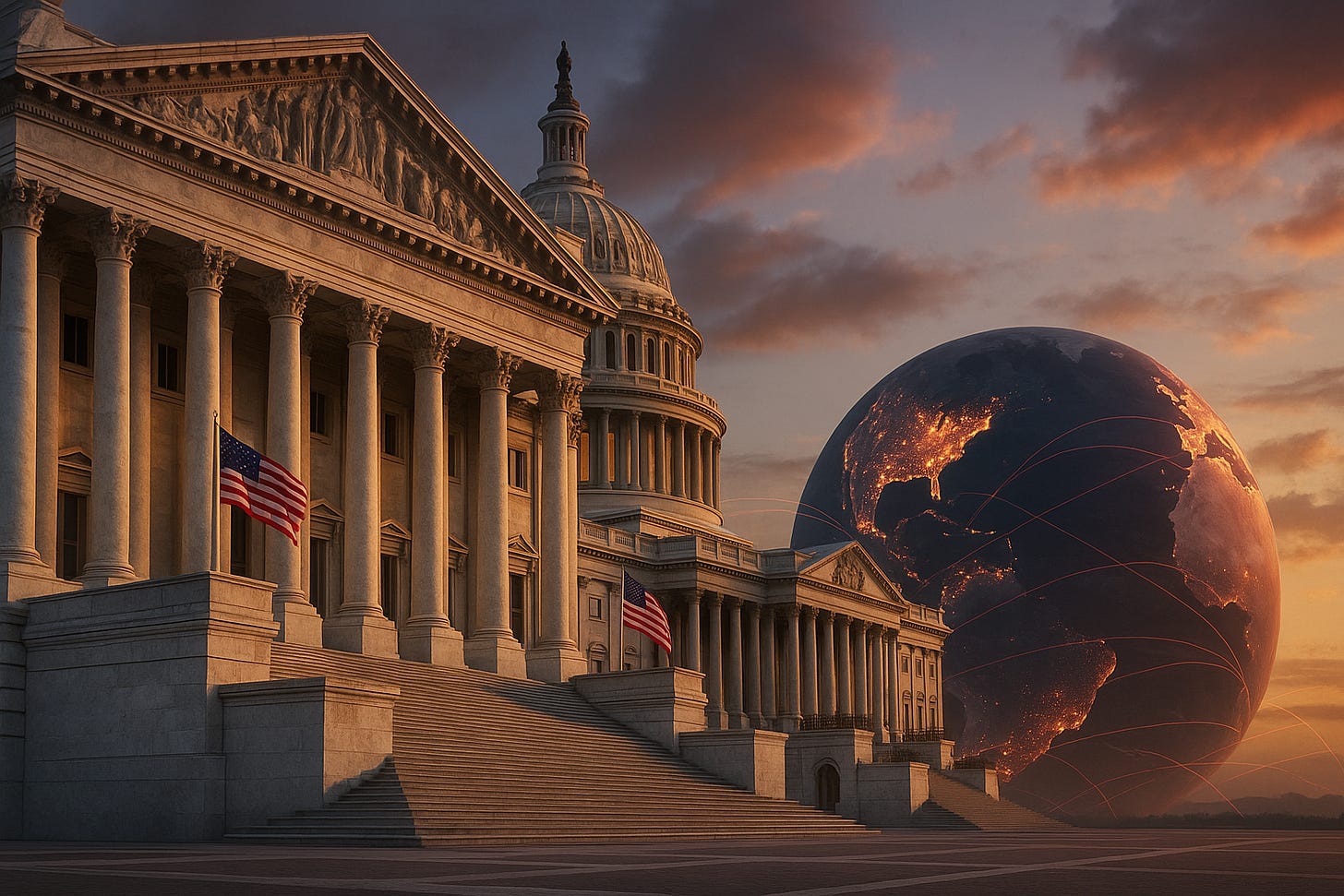The Ongoing Trumpist Unmaking of U.S. Network Power: Tariffs, Ambivalence, & the Slow Isolation & Hence Decline
Yes, Henry Luce’s “American Century” is now over. Any further questions? Tariffs tax deterrence; & policy volatility prices U.S. reliability out of potential allies’ long-run planning along both the geostrategic and international globalized value-chain network economy dimensions. When rules wobble, allies reroute—and America’s promises lose compound interest…
The current exterior situation, deftly summarized by the sharp-witted and observant Andreas Kluth:
Andreas Kluth: America’s Friends Will Never Trust the US Again <https://www.ft.com/content/6ed386e3-642a-4564-bfdd-3db3470656e7>: ‘Trump keeps treating the nation’s allies with such contempt that the consequences will be lasting and ugly…. From Taiwan and the Philippines to Estonia and Germany, no American ally can be sure that Washington, in a pinch, would have its back. Trump’s willful destruction of America’s alliance capital is so self-defeating that it “discombobulates us,” says Graham Allison…. For the sake of argument, ignore factors such as honor, credibility, ideals and values for a moment and think only in terms of realpolitik…. The US’ allies are instead reacting as predicted by… “balance-of-threats”…. They’re forming other trading and security networks, excluding the US to hedge against hostility by Trump or a future president…. Gregory Meeks… “What keeps me up most,” he finally answered, is “whether or not our friends and allies will ever trust the United States again.” The way I heard it, the question was rhetorical. I fear the answer is simple and sad: They won’t…
This is overstated. But not by much.
This is the geostrategic bottom line: Without credible, rules-based trade and steady alliance signaling, the US forfeits its unique network power, and allies’ rational hedging makes “ever-trust again” less likely each cycle. What follows is a predictable erosion dynamic: when tariffs and export controls feel arbitrary, supply chains reroute; when defense commitments oscillate, capitals draft contingency treaties without Washington; when intelligence sharing becomes politicized, joint planning degrades.
Network power is multiplicative—trust compounds across trade, finance, tech, and security—so shocks don’t just subtract, they divide. As partners internalize counterparty risk, they invest in redundancy and mini‑laterals, reducing U.S. leverage precisely where collective action is decisive against revisionist powers. Rebuilding requires transparent rules, institutional ballast, and consistent signaling over time; absent that, each episode of unpredictability deepens the discount rate allies apply to American promises, turning doubt into structure rather than merely keeping it at mood.
It is unclear what form the human social practice of superpower cold and hot war will take in the rest of the 2000s.

